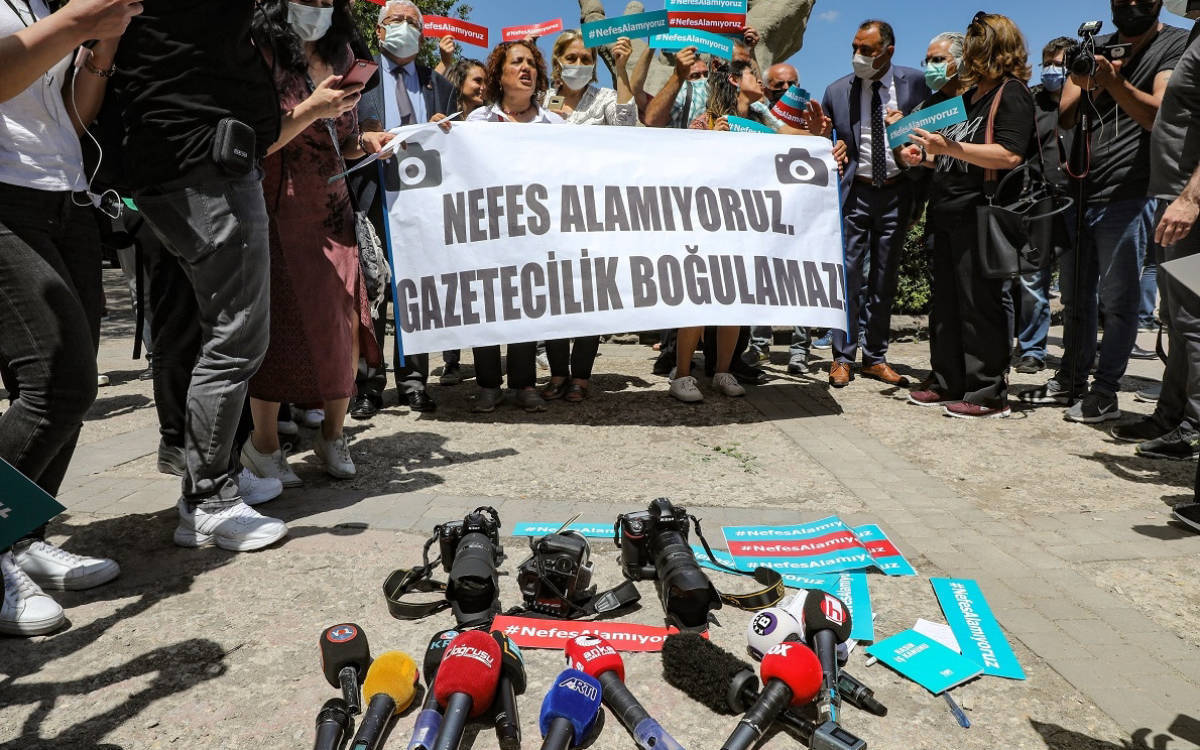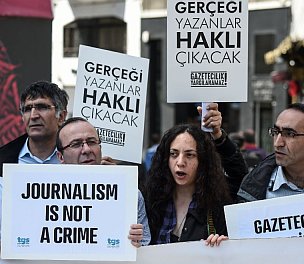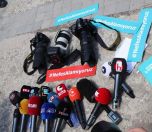From January to June 2023, the Media Freedom Rapid Response (MFRR) has documented 575 incidents of press freedom violations affecting 844 individuals or media organizations across European Union (EU) member states and candidate countries. Of these, 307 cases occurred in EU member states, and 268 in candidate countries.
The most prevalent type of attacks within the EU involved verbal violations, including insults and defamation aimed at journalists, constituting 35.8% of cases. Legal violations ranked as the second most significant category at 24.8%, followed by physical attacks at 21.2%, property damage at 16.9%, and censorship at 14.3%.
A comprehensive overview of media freedom in the EU and candidate countries during the first half of 2023 reveals a concentration of pressures on independent media in Turkey, particularly amid the February earthquakes and the presidential and parliamentary elections in May.
Throughout the reporting period, the MFRR documented a record number of violations of press and media freedom in Turkey, encompassing 136 incidents involving 172 individuals or media organizations.
Arbitrary arrests
Legal violations, constituting nearly half (44.9%) of the documented cases, continued to pose the most widespread threat to media freedom in Turkey, according to the MFRR. Arbitrary arrests, fabricated charges, and convictions were consistently used to intimidate journalists and stifle critical and independent journalism.
Allegations such as "terrorism," "insulting public officials," "insulting the president," and "incitement to hatred and hostility" were frequently employed in fabricated charges against journalists.
Turkey remained among the top countries imprisoning journalists globally. At the time of the report, 21 journalists were still behind bars.
The MFRR referred to this as representing "another step in the systematic harassment and intimidation of journalists covering matters of public interest, particularly Kurdish journalists."
The report also highlighted cases of journalists subjected to physical violence by security forces and local residents.
RTÜK: Regulator without press freedom safeguards
The MFRR described the Radio and Television Supreme Council (RTÜK) in Turkey as a "government-controlled media regulator." It noted that RTÜK had discriminated against media outlets, imposing sanctions, primarily financial penalties, and temporary bans on TV programs, particularly for critical coverage of earthquakes and elections.
During the reporting process, Turkish courts issued access-blocking orders on hundreds of news articles and social media posts, many of which could not be included in the MapMF database due to their sheer volume.
The MFRR report accused politicians, government-friendly media, and RTÜK of openly discrediting, threatening, and intimidating independent news organizations and journalists, particularly for their coverage of post-earthquake events. (HA/VK)









